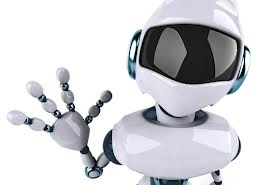First of all, AI is nothing to be frightened of. It’s not a sentient being like SkyNet or an evil red light bulb like HAL. Fundamentally, AI is nothing more than a computer program smart enough to accomplish tasks that typically require human quality analysis. That’s it, not a mechanized, omnipresent war machine.
Secondly, AIs are not alive. While AIs are capable of performing tasks otherwise performed by human beings, they are not “alive” like we are. They have no genuine creativity, emotions or desires other than what we program into them or they detect from the environment. Unlike in science fiction (emphasis on the fiction) AIs would have no desire to mate, replicate or have a small AI family.
Next, AIs are generally not very ambitious. It’s true that in very limited context, an AI can think similarly to us and set tasks for itself. But its general purpose and reason for existence is ultimately defined by us at inception. Like any program or technology, we define what its role in our society will be. Rest assured, they will have no intention to enslave humanity and rule us as our AI overlord.
___________________
Thanks to Rob Smith (@robpecabu) for a welcome infusion of reality-based thinking.
As to AI and sentience, though... It seems to me that the door is very much open.
As to AI and sentience, though... It seems to me that the door is very much open.
Merriam-Webster tells us that sentient means "able to feel, see, hear, smell, or taste."
My own work bears directly on what might be called artificial sentience.
Since this blog is all about all that, though, I will refrain from repeating myself this one time.
Since this blog is all about all that, though, I will refrain from repeating myself this one time.





